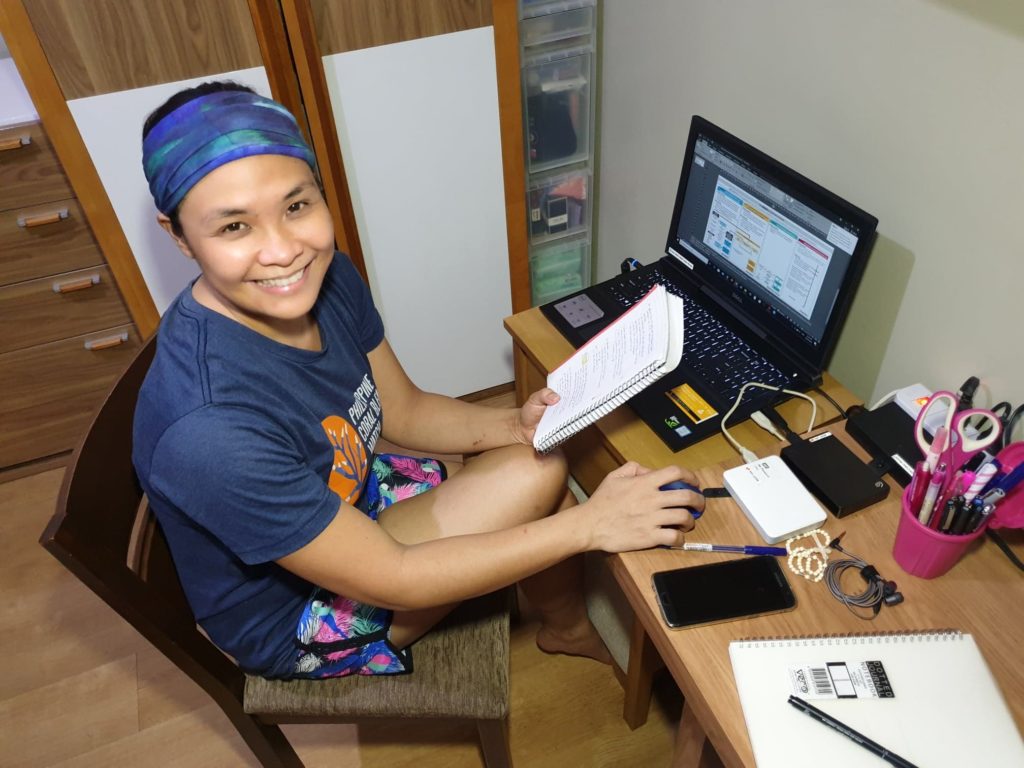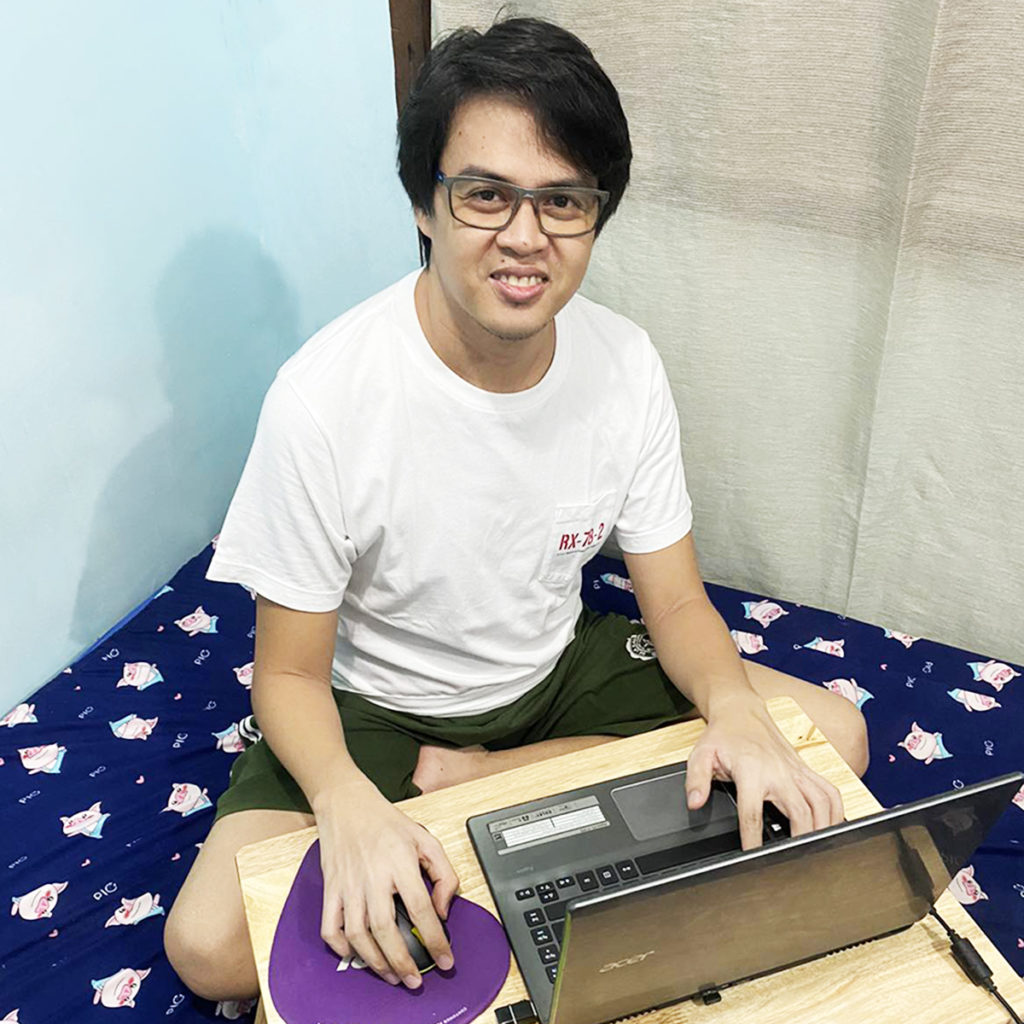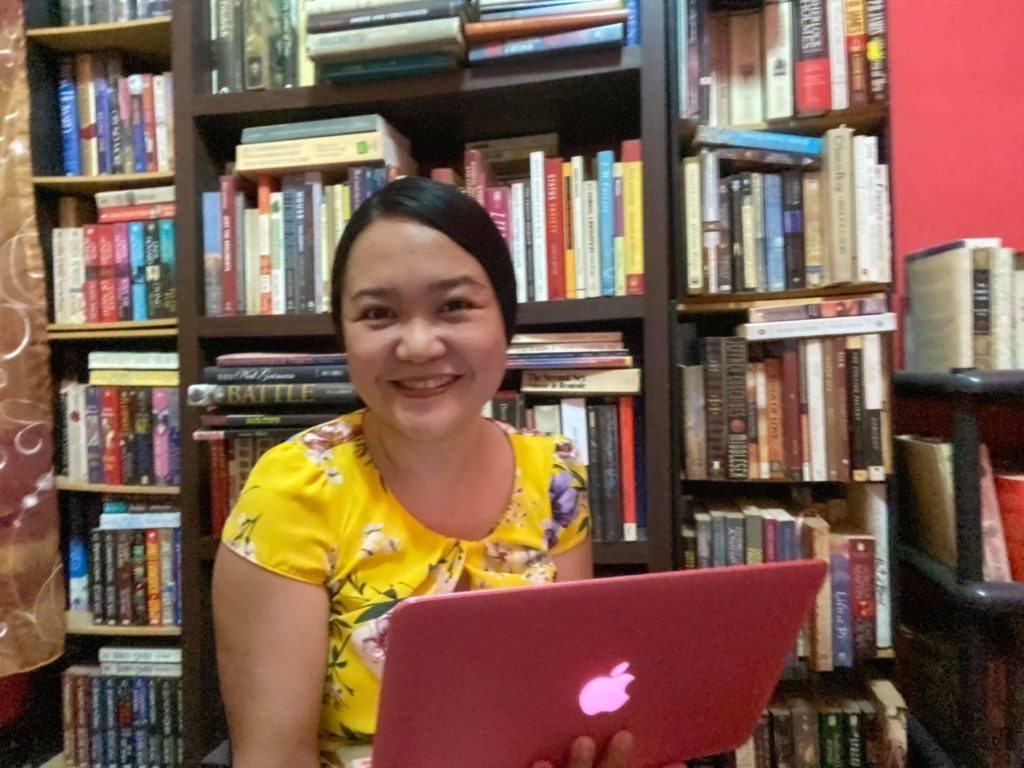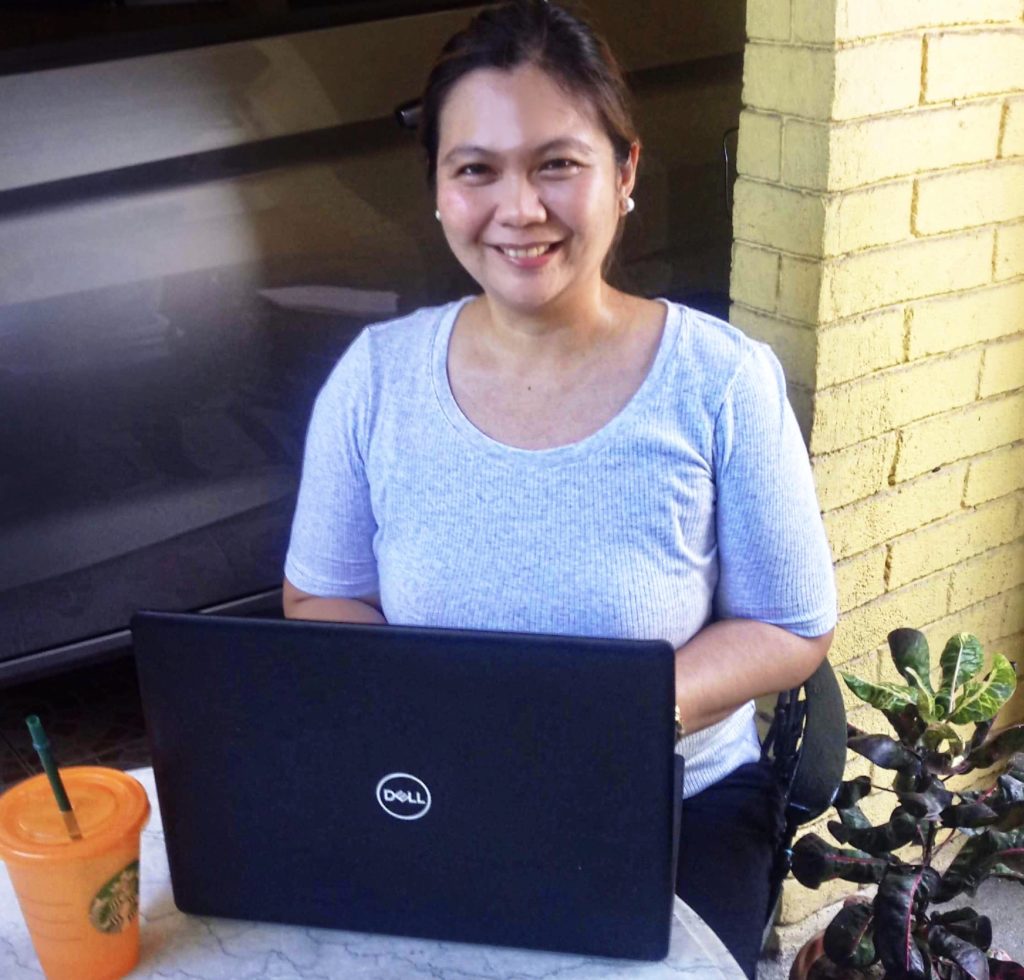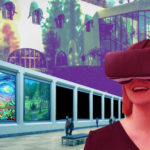The Enhanced Community Quarantine has brought to the surface a range of learning issues for university students, from accessing reliable internet connection to absorbing the online delivery of lessons. Add these to anxieties about one’s health and resources during the pandemic and new work rhythms, students are finding themselves unable to focus on schoolwork and their priorities shifting in major ways. Some have been overwhelmed and frustrated to a point of giving up on further work for the remainder of the term.
However, for a small population of learners in DLSU, one accustomed to independent study, tight deadlines, and evening classes piled on top of job and personal responsibilities, learning goes on. They are the graduate students of DLSU, a resilient group that appears to be adapting well, in various ways, to this difficult time.
Kat Luzon, a PhD student of Biology and DOST scholar who is working on her dissertation, narrates the effects of the pandemic and quarantine on her work. “DLSU has been very generous in easing deadlines and guidelines on grading this term, but as a government scholar, I still have to be faithful to my time table and fulfill deliverables to my funding agency. One of the challenges that most graduate students like me have is figuring out the logistics of fieldwork. We have to visit sites on a regular basis, in provinces which are inaccessible now. Another challenge is the recent budget cuts on our project funding.”
She admits that the current setup works for students like her who are writing their dissertation. However, feelings of anxiety and uncertainty due to the pandemic have made it harder to focus on writing lately, an experience she shares with others in her class.
On top of schoolwork, she has to look after her family by doing outdoor errands and most of the household chores. Yet she pushes on with a singular goal, to defend her dissertation proposal in the next available opportunity. “Despite delays brought on by the pandemic, we still have to face our responsibilities as graduate students,” she concludes.
Still, not everyone experiences difficulty to focus. Some students are finding their center through school work. Thomas Miranda, a first year student of Master in Information Technology, finds himself taking on class requirements with renewed vigor. “I suddenly have a lot of energy to tackle my research paper. I cling to it as the only semblance of normal left in this situation,” he explains.
Grad students are provided access to all the research resources that the University can provide. The University Library offers free access to a number of online journals, media, webinars, and other resources that Lasallians can tap anywhere using their student email accounts. This takes care of the need to be physically present in school premises to do research, analyze data, discuss with peers, or prepare presentations.
Similarly, DLSU educators are equipped to work remotely with their students. Even before the pandemic, Philosophy Department Associate Professor Dr. Noelle Leslie Dela Cruz has been using Canvas, a digital platform that the University has long encouraged its professors to use, to mentor her students in writing their master’s thesis proposals.
“Canvas lets them submit their drafts to me, which I can then easily comment on digitally, and send back to them. The system is really efficient. Even though I don’t see them face to face, it’s as though they were submitting their papers to me and I was literally writing on these for my comments. Canvas also helps me set up a nest system of deadlines,” she shares.
Aby Maraño, a Philippine Media Studies graduate student working on her thesis finds the inherent design of grad school, which is paced for part-time students, helpful in this time. The typical graduate student in DLSU enrolls in only six units or two courses per term. These units are taken up in classes that are held twice to three times a week, in the evening, or the whole Saturday. The set up is especially relevant to Aby, a full-time professional athlete and member of the national women’s volleyball team. Her job frequently takes her to various cities around the world for training and competition.
“Grad school is not designed to run your life. You are expected to keep a job and continue whatever you do in your personal life. You are expected to balance all of these,” she says.
Graduate students also enjoy small classes that allow for better interaction with professors, whether online or in person.
One of the definitive qualities of DLSU grad school that may also be helping students adjust to the pandemic is that activities are designed to complement one’s work, job, or business and not compete with it.
Bank Business and Operations Support Manager Myra De Leon, who is taking up a PhD in Business as a scholar, talks about merging work and class experiences. She says, “With concepts and theories learned in school and read from various journals, we are able to evaluate theories, analyze behavior, and discover patterns in real scenarios. If you do it right, you hit two birds with one stone by solving problems in the office and contributing to a body of knowledge as a researcher.”
DLSU Graduate Studies goes by “Beyond higher learning”, a slogan that grad students are able to apply well during this pandemic. They do that by using their academic training to improve their personal and career situations as well as others’. Their discipline to honor commitments and capacity to adjust to challenges are indicators of their ability to endure and are perhaps the best example of learning beyond the four walls of the classroom.
Photos: Dela Cruz, De Leon, Luzon, Miranda


